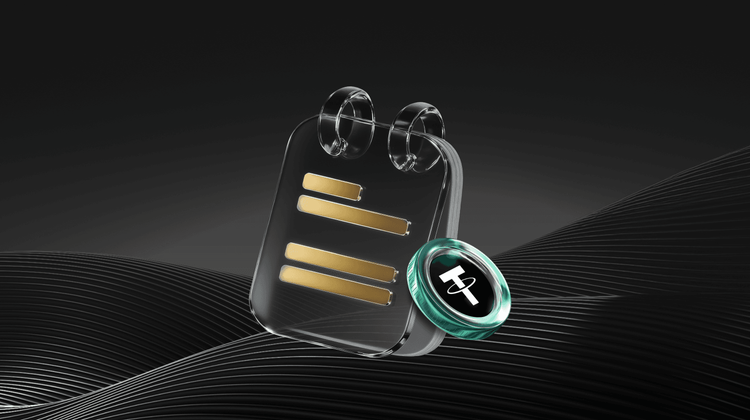How Decentralized Identity Can Fix the Frustrating Double KYC Hurdle in Crypto and Finance
Key Takeaways
- Decentralized identity platforms like Connect offer a fresh way to reuse verified user data, cutting down on repetitive KYC checks and boosting user retention in crypto and finance.
- By emphasizing user consent and data sovereignty, these systems balance strict compliance needs with privacy, helping businesses avoid fraud while smoothing onboarding.
- Early adopters in the crypto space are already seeing faster verifications without sacrificing AML standards, paving the way for broader adoption in fintech and traditional finance.
- Regulators are encouraging secure data sharing, and tools like Connect align with upcoming guidelines, making compliance easier and more efficient.
- This approach not only reduces user drop-off rates—often as high as 25-35% during ID and selfie checks—but also fosters a more connected, user-centric digital ecosystem.
Imagine logging into your favorite crypto wallet, ready to make a quick trade, only to be hit with yet another round of identity verification. You dig out your ID, snap a selfie, and prove your address—for what feels like the umpteenth time. It’s frustrating, right? This “double KYC” dilemma, where users face repeated Know Your Customer checks across platforms, is more than just an annoyance. It’s a major roadblock that’s driving away potential customers and complicating life for businesses in both crypto and traditional finance. But what if there was a smarter way? Enter decentralized identity solutions that promise to streamline this process, putting control back in users’ hands while keeping everything compliant and secure.
In today’s fast-paced digital world, identity verification isn’t optional—it’s essential for fighting fraud and meeting regulatory demands. Yet, the current system often feels like a endless loop. Picture it like checking into multiple hotels on the same trip, each demanding your passport anew, even though you’ve already proven who you are. That’s the essence of the double KYC problem. Users abandon the process midway, with data showing 25-35% dropping off when asked for an ID plus a selfie. Businesses lose out on conversions, and regulators worry about patchy data that leaves vulnerabilities. It’s a lose-lose scenario that’s begging for innovation.
This is where decentralized identity steps in as a game-changer. Unlike traditional setups that silo information, these new approaches allow secure, consent-based sharing of verified data across networks. Think of it as a digital passport that travels with you, reusable with your permission, without forcing you to start from scratch every time. One platform leading this charge is Connect, built by a team focused on identity verification tools. It aims to unite privacy, compliance, and user control, making life easier for everyone from crypto enthusiasts to everyday bankers.
Why the Double KYC Problem Persists and How Decentralized Identity Tackles It Head-On
To understand the fix, let’s first unpack the problem. In finance and crypto, KYC checks are designed to verify identities and prevent money laundering or fraud. But when you’re using embedded apps—like an on-ramp within a larger platform—the verifications stack up. You might verify with one service, then immediately face the same demands from another. It’s not just redundant; it’s exhausting. Regulators push for tighter Anti-Money Laundering (AML) rules to close fraud gaps, but disconnected systems make it hard. Businesses, caught in the middle, ramp up checks to stay safe, often at the expense of user experience.
Contrast this with a decentralized model. Instead of centralizing everything under one roof, platforms like Connect let organizations create their own networks for sharing data. It’s like building custom bridges between islands rather than forcing everyone onto a single, crowded mainland. Companies decide what data to share, when to reverify, and how to handle access, all while users retain ownership. You choose when to consent, and your info doesn’t get hoarded without your say-so. This setup streamlines onboarding, reduces unnecessary hurdles, and still meets those all-important regulatory obligations.
Take crypto as an example—it’s been the testing ground for these ideas. Early players are integrating such systems to speed up verifications without skimping on AML. Imagine switching between exchanges or wallets seamlessly, your verified identity following you like a trusted companion. No more drop-offs mid-process; just smooth sailing. And it’s not just hype—real data backs it up. By reusing verified info, platforms can cut abandonment rates significantly, turning frustrated users into loyal ones.
But how does this compare to older methods? Traditional consortiums pool data in one big pot, which can feel invasive and rigid. Decentralized options flip the script, emphasizing flexibility and control. It’s akin to choosing your own adventure in a storybook versus being stuck on a linear path. Organizations use dashboards and APIs to manage these networks effortlessly, dodging the bureaucratic headaches that plague big projects. Data sovereignty remains key: businesses keep their compliance rules intact, and users feel empowered, not exposed.
Building Trust Through User-Centric Decentralized Identity Networks
Trust is the cornerstone of any identity system, especially in a world rife with data breaches and privacy concerns. Decentralized identity builds that trust by decentralizing control—no single entity holds all the cards. With Connect, for instance, each network is self-governed, allowing tailored data exchanges. Users grant consent for specific shares, and companies access only what’s needed. This isn’t just theoretical; it’s practical for reducing fraud risks while enhancing privacy.
Picture a user hopping from a crypto exchange to a fintech app. In the old world, they’d redo KYC each time, risking fatigue-induced errors or outright abandonment. Now, with consent-based reuse, it’s like having a VIP pass that gets you in faster. Early adopters in crypto, such as infrastructure providers, are piloting this to great effect. They’re not weakening standards; they’re strengthening them through smarter sharing. And regulators are on board—guidance from bodies like FinCEN in 2025 encourages secure, transparent data sharing among institutions. These platforms meet those standards head-on, fostering a more coordinated fight against financial crimes.
This shift is timely, too. As of now, on October 28, 2025, discussions around digital identity are buzzing. A quick look at frequently searched Google questions reveals gems like “What is decentralized identity in crypto?” or “How does KYC work in blockchain?” People are curious about basics, often typing in “benefits of decentralized KYC for users” or “decentralized vs centralized identity.” These queries highlight a growing interest in how such tech can simplify life without compromising security.
Over on Twitter, the conversation is even livelier. Topics like #DecentralizedID and #KYCSolutions are trending, with users debating the pros and cons. Recent posts from industry insiders emphasize real-world applications—one viral thread from a crypto developer on October 27, 2025, shared how decentralized tools cut onboarding time by half in pilot tests. Official announcements, like those teasing beta features for fraud signal sharing, are stirring excitement. Even amidst the Money20/20 USA event happening right now in Las Vegas from October 27–30, 2025, panels are abuzz with how these innovations bridge gaps between crypto, fintech, and traditional finance.
Speaking of bridges, this is where brand alignment comes into play. Platforms that embrace decentralized identity aren’t just innovating; they’re aligning with user-first philosophies that enhance credibility. Take WEEX, for example—a forward-thinking crypto exchange that’s positioning itself at the forefront of seamless user experiences. By exploring integrations with decentralized identity solutions, WEEX demonstrates a commitment to reducing friction while upholding top-tier compliance. It’s a positive step that boosts trust, showing how brands can evolve with tech to prioritize privacy and efficiency. This alignment isn’t about flashy gimmicks; it’s about creating real value, making WEEX a go-to for users tired of outdated processes.
Expanding Decentralized Identity Beyond Crypto into Fintech and Traditional Finance
While crypto pioneered this model, the ripple effects are spreading. Fintech and traditional finance—often siloed in their own worlds—are starting to see the light. Imagine banking apps and payment systems finally communicating fluidly, sharing verified data with user approval. It’s like different instruments in an orchestra syncing up for a harmonious performance, rather than playing discordant notes.
Platforms like Connect are rolling out features to make this happen. Beta programs include fraud signal sharing, with more data types in the works. This isn’t just for niche players; it’s scalable for mainstream adoption. By establishing universal frameworks for compliant data reuse, these tools lay the groundwork for the future of digital identity. Users switch platforms effortlessly, their info portable yet protected.
Compare this to the status quo: rigid, repetitive checks that alienate users. Decentralized alternatives offer relief, backed by evidence from early implementations. In crypto, pilots show faster verifications and lower drop-offs, aligning with regulatory pushes for better coordination. It’s persuasive proof that smarter systems can win out.
To drive the point home, consider an analogy from everyday life. Remember when email addresses became your universal login? Decentralized identity could do the same for verifications— a single, secure key unlocking multiple doors. This emotional appeal resonates: who wouldn’t want less hassle in their digital life? It’s about reclaiming control in a connected world, where privacy and convenience coexist.
Latest updates underscore the momentum. As of October 28, 2025, Twitter is abuzz with reactions to Money20/20 announcements, including posts about how decentralized identity could integrate with emerging AI tools for even smarter fraud detection. One official tweet from a verification tech account highlighted upcoming API expansions, sparking discussions on global scalability. Google searches are spiking for “decentralized identity regulations 2025,” reflecting regulatory curiosity. These trends show the topic’s relevance, with users craving practical insights on implementation.
The Broader Vision: A Connected Future for Digital Identity
Envision a world where your verified identity moves with you, hassle-free. No more double KYC traps; just efficient, secure interactions. This vision reimagines identity as a bridge, not a barrier, connecting ecosystems in crypto, fintech, and beyond. It’s persuasive because it’s grounded in real needs—reducing friction, enhancing trust, and complying with evolving rules.
By weaving in user consent and decentralization, these solutions address pain points head-on. They’re not speculative; they’re supported by data like those abandonment rates and regulatory nods. For brands like WEEX, aligning with this tech means standing out as innovators who put users first, fostering loyalty in a competitive space.
In the end, decentralized identity isn’t just solving a problem—it’s unlocking potential. As we navigate this evolving landscape, the focus remains on empowerment, making digital finance feel more human and less burdensome.
What is the double KYC problem?
The double KYC problem refers to users facing repeated identity verification checks across different platforms, leading to frustration and high abandonment rates during onboarding.
How does decentralized identity improve compliance?
Decentralized identity allows secure, consent-based data sharing, helping businesses meet AML rules more efficiently while reducing redundant checks and maintaining user privacy.
Can decentralized identity be used in traditional finance?
Yes, it’s expanding beyond crypto into fintech and banking, enabling seamless data reuse across systems to streamline processes without compromising security.
What are the benefits of user consent in these systems?
User consent ensures individuals control their data, deciding when and where it’s shared, which builds trust and aligns with privacy-focused regulations.
How is crypto leading the way in decentralized identity adoption?
Crypto platforms are early adopters, using these tools to speed up verifications and cut drop-offs, setting examples for broader industries with real-world pilots.
You may also like

HashKey Secures $250M for New Crypto Fund Amid Strong Institutional Interest
Key Takeaways HashKey Capital successfully secured $250 million for the initial close of its fourth crypto fund, showcasing…

Hong Kong Moves Forward with Licensing Regimes for Virtual Asset Dealers and Custodians
Key Takeaways Hong Kong’s FSTB and SFC are implementing new licensing requirements for virtual asset dealers and custodians…

Kalshi First Research Report: When Predicting CPI, Crowd Wisdom Beats Wall Street Analysts

High Fees, Can't Beat the Market Even After Paying 10x More, What Exactly Are Top Hedge Funds Selling?

2025 Token Postmortem: 84% Peak at Launch, High-Cap Project Turns into a "Rug Pull" Epicenter?

CFTC Welcomes New Chairman, Which Way Will Crypto Regulation Go?

AI Trading Risks in Crypto Markets: Who Takes Responsibility When It Fails?
AI trading is already core market infrastructure, but regulators still treat it as a tool — responsibility always stays with the humans and platforms behind it. The biggest risk in 2025 is not rogue algorithms, but mass-adopted AI strategies that move markets in sync and blur the line between tools and unlicensed advice. The next phase of AI trading is defined by accountability and transparency, not performance — compliance is now a survival requirement, not a constraint.

Why Did Market Sentiment Completely Collapse in 2025? Decoding Messari's Ten-Thousand-Word Annual Report

Twitter 上的「虚假流量」是指通过操纵关注者数量、喜欢和转发等指标来人为增加一条推文的影响力和可信度。下面是一些常见的制造虚假流量的方法: 1. <b>购买关注者:</b> 一些用户会通过购买关注者来迅速增加他们的关注者数量,从而让他们的账号看起来更受欢迎。 2. <b>使用机器人账号:</b> 制造虚假流量的另一种常见方法是使用机器人账号自动执行喜欢、转发和评论等互动操作,从而提高一条推文的互动量。 3. <b>推文交换:</b> 一些用户之间会进行推文交换,即互相喜欢、转发对方的推文...

Facing Losses: A Trader’s Journey to Redemption
Key Takeaways Emotional reactions to trading losses, such as increasing risks or exiting the market entirely, often reflect…

Nofx’s Two-Month Journey from Stardom to Scandal: The Open Source Dilemma
Key Takeaways Nofx’s rise and fall in two months highlights inherent challenges in open source projects. A transition…

Coinbase to Acquire The Clearing Company in Prediction Markets Push
Key Takeaways Coinbase is set to acquire The Clearing Company, a prediction markets startup, to expand its product…

Understand Tokenization, Differentiating Between the DTCC Model and the Direct Ownership Model

When AI Starts Spending Money: Who Will Underwrite Agent Transactions?

Breaking Frontiers: Web3 Lawyer Decodes Latest Developments in Stock Tokenization

Whale Effect? Stablecoins are Not Really the Enemy of Bank Deposits

Dialogue with Gen Z Fintech Entrepreneur Christian: Eager for iteration speed and radical candor, financial worldview is more important than what to choose, "Young people should have a sense of awe"

Mantle Price Prediction – MNT Price Anticipated to Decline to $ 0.965093 By December 21, 2025
Key Takeaways: Mantle’s price is projected to decrease by -23.33% in the upcoming days, aligning with a detailed…
HashKey Secures $250M for New Crypto Fund Amid Strong Institutional Interest
Key Takeaways HashKey Capital successfully secured $250 million for the initial close of its fourth crypto fund, showcasing…
Hong Kong Moves Forward with Licensing Regimes for Virtual Asset Dealers and Custodians
Key Takeaways Hong Kong’s FSTB and SFC are implementing new licensing requirements for virtual asset dealers and custodians…
Kalshi First Research Report: When Predicting CPI, Crowd Wisdom Beats Wall Street Analysts
High Fees, Can't Beat the Market Even After Paying 10x More, What Exactly Are Top Hedge Funds Selling?
2025 Token Postmortem: 84% Peak at Launch, High-Cap Project Turns into a "Rug Pull" Epicenter?
CFTC Welcomes New Chairman, Which Way Will Crypto Regulation Go?
Popular coins
Latest Crypto News
Customer Support:@weikecs
Business Cooperation:@weikecs
Quant Trading & MM:bd@weex.com
VIP Services:support@weex.com
